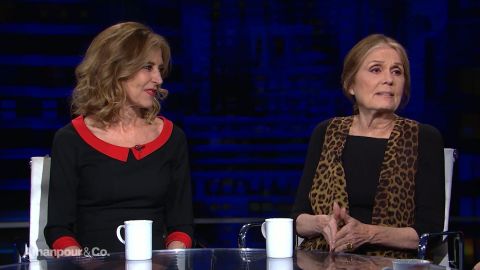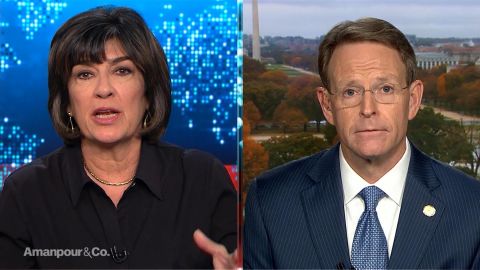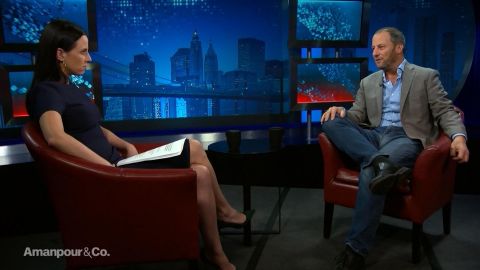Read Transcript EXPAND
We've talked about an unprecedented number of women running for Congress and running for governors and running for all sorts of different offices.
First to you, Gloria, what do you think the effect will be? What do you hope to wake up to on Wednesday morning?
Democracy, a little thing like that.
I mean, just look at who our elected officials have been, regardless of party, look at who the authority figures in our culture have been, and the rising women's movement not just here but around the world is saying, wait a minute, if the authorities don't look like the country, by sex and race and so on, do we really have a democracy, and they are surging to transform us into a democracy.
And was I correct when I said that the women, and I know you're a feminist as well as an actress portraying Gloria, are trying to shape up as the battering ram against any more sort of walls against women's rights?
Yes of course, yes, I mean because we got this radical idea that women are human beings in the 60s.
Where did we get that; that's a crazy idea.
You know, I'm glad you asked where do we get that.
Then it was about a third and gradually, gradually, gradually it has become the majority, and actually black women are on the forefront of this and if you look at the vote, you see that black women voted something like 90 percent against Trump and 51 percent of white women, especially married, non-college educated women, who are dependent on their husbands, voted for Trump.
I'm going to get to get to that in a second but you said who would have thought it, Christine, but I read that you even said yourself that it wasn't until about the 70s that you assumed feminism, that you sort of got to grips with what it meant, that it sort of affected you and that until then, you had thought that being a second class citizen was a biological fact.
I did. I mean I saw my mother, I saw all my friend's mothers in my suburb, basically white suburb of Detroit, and saw that they were all second class citizens, they had- nobody worked.
None of these women worked, except in the house.
They were housewives and mothers and they were treated with disrespect and I saw that and it broke my heart but I thought well that's just the way the world is. Then I went to college and there was suddenly diversity and it was like you know a whole new world and as Sylvia Plath wrote about when she first went to Smith, she said it was like a watermelon cracked open at her feet, it's this big juicy watermelon melon of possibilities and life just cracked open.
And that's how I felt when I went to college and I learned about Gloria and I learned about Robin Morgan and Betty Friedan and these feminists and it just became such an eye opener, it changed my life, and feminism has been my life jacket that has helped me navigate through a world that I detected, finally in the early 70s, a world that didn't really respect or like women.
About This Episode EXPAND
Christiane Amanpour speaks with Tony Perkins, president of the Family Research Council, about the white evangelical vote; and Gloria Steinem & Christine Lahti about women’s votes. Alicia Menendez speaks with journalist George Packer about political tribalism.
LEARN MORE


